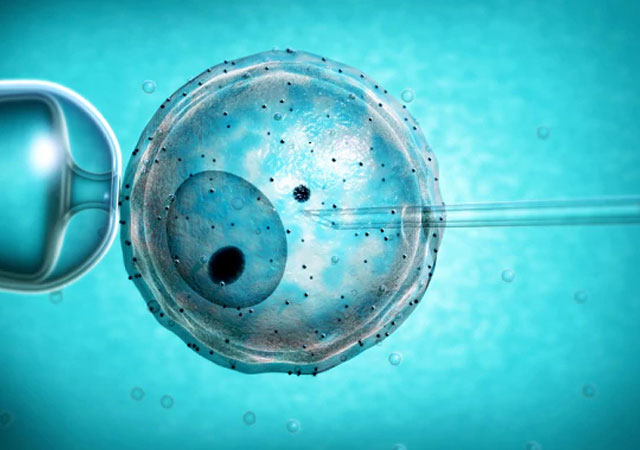Using donated eggs, the mother and child are still born as
A new study shows that people who give birth using donated eggs do not have the same interaction with children as women who give birth with their own eggs.
Scientists at Cambridge University found that mothers who have babies using donor eggs tend to be less closely connected with their children, especially in how they interact with them.
New research was presented at a conference of the American Reproductive Society (ASRM) in Denver, Colorado, with the participation of 85 families using donor eggs during IVF IVF and 65 others use their own eggs.

About 1400 babies were born in 2016 in the United Kingdom by this method, 3 times more than in 1996.
Both father and mother are required to perform a game task with the child within 10 minutes. This process was filmed by researchers for analysis. The number of points they scored was 29 points. The researchers evaluated scores based on four criteria: how parents give birth to donated eggs with their needs; how they support you to play well; they have imposition when playing with children and ultimately their hostility towards them.
Researchers also observed how 11-month children interact with their parents, including how long they communicate with their parents for a long time, laugh for how long and babble talk to for how long .
In the emotional criteria, 85 mothers who use donated eggs to give birth are considered to be very warm and love their children but they have small differences compared to 65 mothers remaining when playing with children. They are less sensitive to children's smiles and eyes while children are less likely to interact with their mothers. They have less eye contact and smile at their mother. Instead they prefer to hold or wave toys more.
Meanwhile, fathers in both groups interact equally with their children.
The researchers concluded that : 'Families that use donor eggs are very caring and loving, but there is still a difference, although it must be very subtle to recognize in the interaction between mothers. and newborn baby '.
Stuart Lavery, a reproductive health consultant at Royal University, London (UK), said: 'This is an important study indicating that there may be differences in the quality of relationships. sample - death between families receiving donor eggs and traditional IVF families'.
The researchers believe that this difference can be explained by genetic relationships : mothers who give birth through donated eggs are genetically unrelated to the child or because they are mothers when at high age.

Despite the subtle differences that make sense in the interaction between mother and baby born with donor eggs, these parents are still very loving and attentive to their children.
The study also found that women who gave birth through donated eggs were also less confident about parenting skills, but this was attributed to mothers' age.
Professor Susan Imrie, from the University of Cambridge Family Research Center, co-author of the study, said: 'There are a number of mothers who give birth thanks to egg donation in the study admit that they struggling with not being related to biology with their children '.
Finally, the study results also show that there is no hostility or uncontrolled behavior for women whose babies are born from eggs of another woman.
The study comes from the growing number of British women, often those who are older, use donated eggs to be mothers. In the UK alone, there are about 1,400 babies born in 2016 by this method, 3 times more than in 1996.
eggs are indicated when the cause of infertility is caused by the ovary of the wife (older wife, ovarian failure early). This method is also done using IVF or sperm in the cytoplasm of the egg but this time the egg is used as someone else's egg (from an egg bank) and fertilized with the husband's sperm .
Later, the embryo is then transferred into the womb of the wife to become pregnant. The donated eggs can be stored in liquid -196 degrees Celsius. When needed, they will be thawed and in vitro fertilization is performed.
- Care and treatment for babies born to mothers with HIV / AIDS
- The child is born unknown or boy
- Unbelievable but true story: Mother died 107 days still giving birth
- Found the Zika pathway transmitted from mother to child
- I am close to my mother so I have a nice love when I am big
- Nghe An: The tiger's mother gave birth to a white child
- More than 100 mother octopus hatched eggs in the deep sea
- Thailand - the first country in Asia to prevent HIV transmission from mother to child
- Mobile can affect children
- The first baby was born in test tubes - that day, now
- Successful mating of nerves from mother to child
- Fluttering mother buffalo born 2 children
 Green tea cleans teeth better than mouthwash?
Green tea cleans teeth better than mouthwash? Death kiss: This is why you should not let anyone kiss your baby's lips
Death kiss: This is why you should not let anyone kiss your baby's lips What is salmonellosis?
What is salmonellosis? Caution should be exercised when using aloe vera through eating and drinking
Caution should be exercised when using aloe vera through eating and drinking